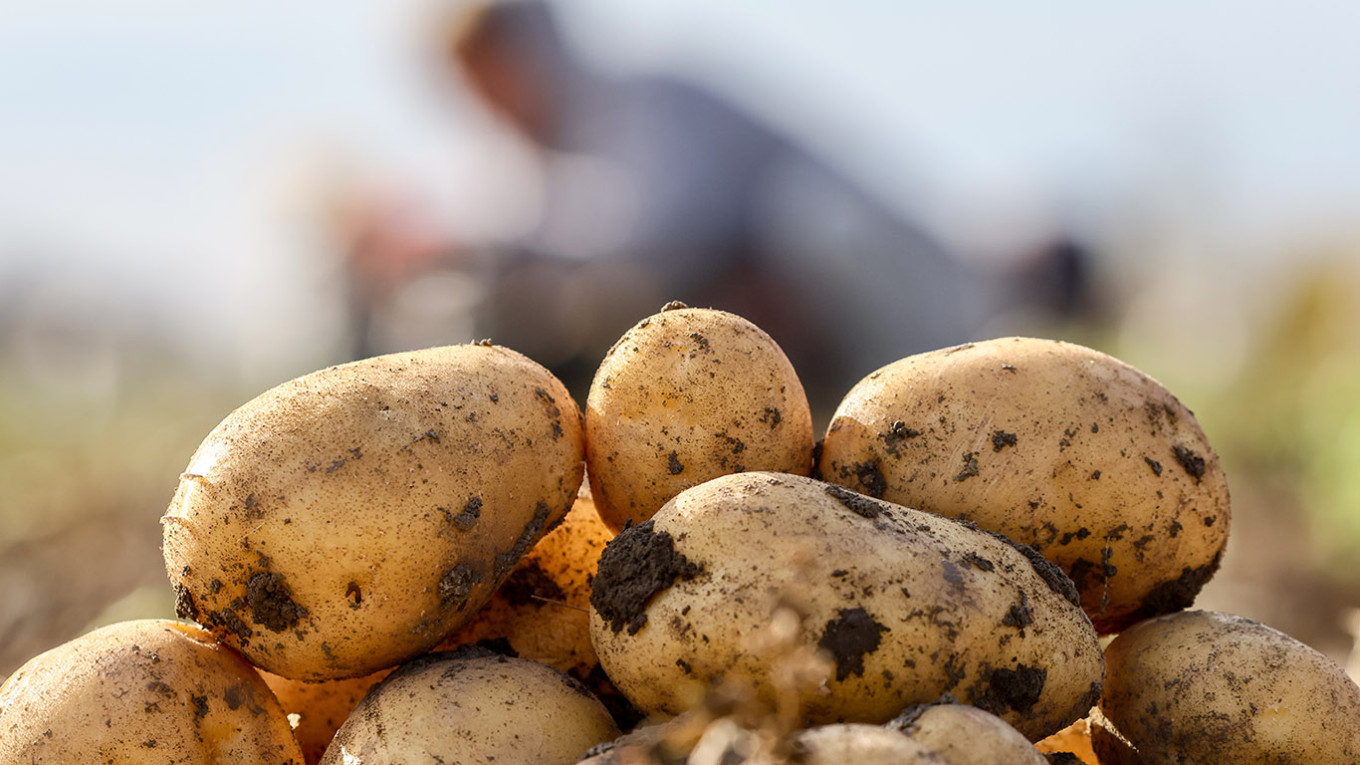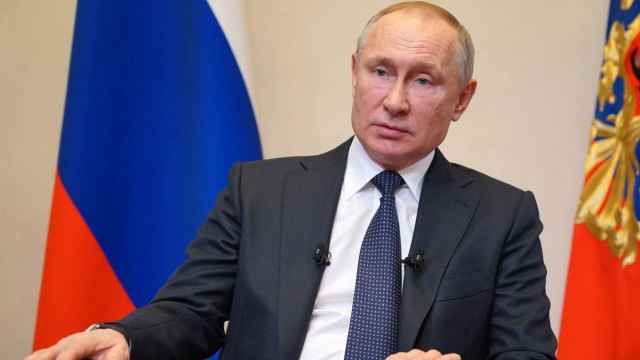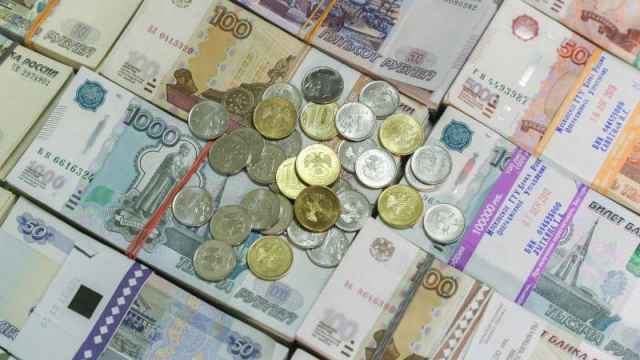The presence of a severe shortage of potatoes in Russia has finally been acknowledged by President Vladimir Putin and even the “potato Fuhrer” himself, Belarusian President Alexander Lukashenko. Prices have nearly tripled year-on-year.
However, the current price-of-potato crisis is only the most noticeable continuation of the general food crisis facing Russians, which began in 2014 when Moscow banned imports of European dairy, meat and other agricultural products in retaliation for Western sanctions over the annexation of Crimea.
Kremlin propagandists shouted that they would happily go without Italian parmesan and Margarita Simonyan even promised to wear torn tights if it would help the greatness of Russia. What she would achieve by this, and what it would say about Russia’s greatness, is a separate question.
The fact is that cheese is an achievement of culture, a masterpiece of food technology, and the most democratic. Millions of Italians have not read Dante or seen the works of Botticelli but are well-versed in the qualities of different cheeses because cooking is the most broadly accessible part of a country’s culture.
To return to the potato, it is important to remember that its introduction to Russia was one of the important Western reforms of Peter the Great, along with the Table of Ranks and beard tax. The Russian people were initially very suspicious of potatoes, thinking the authorities wanted to poison them. But the humble crop has trickled down to become an everyday food.
There is a story that in the late 1980s, when McDonald's came to Russia, American fast food technologists faced the problem that there were no potatoes fit for human consumption in the country. Russian-Soviet potatoes were fodder for livestock and turned out to be unsuitable for slicing and frying. First, human-grade potatoes were bought in Poland. Then we managed to grow our own.
Food is an integral part of culture as a whole and therefore directly affects all aspects of life, especially education and health care. In French schools, lunch is considered a full-fledged lesson. Children do not just eat their cheese or onion soup, but study it. They must try these traditional dishes so they can share French traditional values. That’s right, Russia is not the only country to try to shape the moral upbringing of schoolchildren.
The connection between culture and health is also obvious. If people do not wash their hands before eating, epidemics will spread. If there are no restrictions on eating bats with pangolins in China, we will see more diseases like Covid!
When food, even something as simple as a potato, becomes more expensive, an invisible catastrophe occurs. People do not start eating less, but they start eating monotonously, rotating between pasta or potatoes. Perhaps individual cases are tolerable. But when it affects swathes of the population, problems will start to emerge.
I saw the disastrous effects of this situation in Russia in the 1990s. I saw it in orphanages — they were full of children with spina bifida, a spinal cord hernia that occurs in the fetus before birth due to a lack of vitamins and other nutrients. These unfortunate children did not know how to walk, talk, or control their bowels. The mothers who gave them up were not only starving, but also unable to eat a balanced diet. The terrible fate of these children was to lie in their cots all their short lives, looking at the ceiling and suffering constant headaches.
Ten years later, children with spina bifida practically disappeared from orphanages, or have at least become a rarity. I asked a doctor specializing in this disease how to explain the decrease in the number of patients affected by this disease. The doctor answered: “[Mothers] started to eat normally. That's the whole secret.”
When potatoes become more expensive, people do not stop buying them. After all, they need something to replace pasta. But they will stop buying fish and greens to eat with them, leading to malnutrition that will cause irreparable harm to Russian culture, education and health care for decades.
A Message from The Moscow Times:
Dear readers,
We are facing unprecedented challenges. Russia's Prosecutor General's Office has designated The Moscow Times as an "undesirable" organization, criminalizing our work and putting our staff at risk of prosecution. This follows our earlier unjust labeling as a "foreign agent."
These actions are direct attempts to silence independent journalism in Russia. The authorities claim our work "discredits the decisions of the Russian leadership." We see things differently: we strive to provide accurate, unbiased reporting on Russia.
We, the journalists of The Moscow Times, refuse to be silenced. But to continue our work, we need your help.
Your support, no matter how small, makes a world of difference. If you can, please support us monthly starting from just $2. It's quick to set up, and every contribution makes a significant impact.
By supporting The Moscow Times, you're defending open, independent journalism in the face of repression. Thank you for standing with us.
Remind me later.






